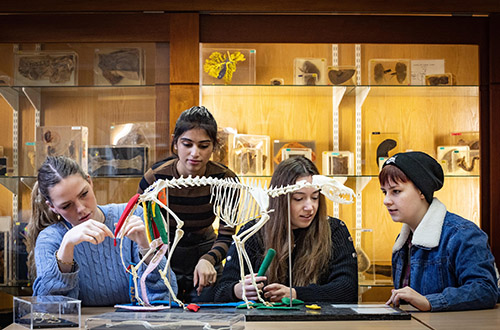Faculty of Health and Life Sciences
Study with us
Postgraduate taught
Find postgraduate taught programmes and courses.
Postgraduate research
Find PhD opportunities and funding.
Continuing professional development
Courses for experienced healthcare practitioners and researchers.
Outreach
Health and life sciences opportunities for schools, young people and mature students.


News
Read our latest news.
Contact us
Get in touch with us - faculty contacts and information.
